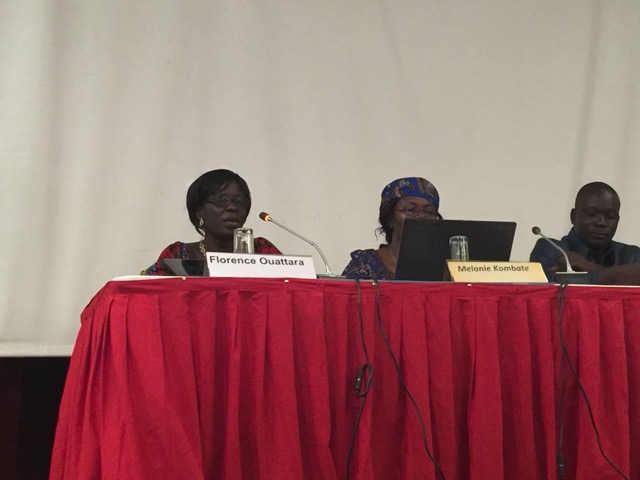
ACHPR61 | Towards a better protection of defenders at the national level
Lire cet article en français ici
During the NGO Forum preceding the 61st session of the African Commission on Human and Peoples' Rights, ISHR organised a panel on the state of promotion and protection of human rights defenders at the national level.
The event, which was held on 30 October 2017, aimed at presenting the developments in African countries which have already adopted national laws promoting and protecting the work of human rights defenders. It was also an opportunity to discuss further steps for the countries in the process of establishing such laws.
The discussion was moderated by Clément Voule, ISHR’s African advocacy director and programme manager for States in transition. It brought together five panellists from human rights NGOs. They analysed the progress made by different countries towards the enactment and implementation of a law protecting defenders as well as supporting them in the challenges they face.
Melanie Kombaten from the West Africa Human Rights Defenders Network emphasised the need to keep advocating for Mali to include a specific provision for the protection of women human rights defenders in its new defenders law.
Furthermore, Olivia Tchamba from Frontline Defenders presented their campaign “Soutenons les droits humains, soutenons les défenseurs des droits humains” (“Let’s support human rights – let’s support human rights defenders”). The campaign aims at gaining support for the newly enacted law on the protection of defenders in Mali and advocates for its implementation. Tchamba explained how important it is that local communities understand the value of the work defenders do for them. ‘Without this understanding, communities do not see the need to support the law or to defend their rights,’ she said.
Some participants from Mauritania and the Democratic Republic of Congo raised awareness for the situation faced by human rights defenders in their respective countries and the crucial need for a law that safeguards defenders and their work.
Florence Ouattara from the National Coordinator of the Coalition Burkinabè des Défenseurs des Droits Humains (CBDDH) gave an overview of the recently enacted law in Burkina Faso. She emphasised that provisions affect the purpose of the law negatively. As an example she pointed out article 16, which allows the State to expel human rights defenders if they are considered threats to national security.
‘As long as the State depreciates the work of human rights defenders, they can’t be safe in their work,’ stated Clément Voule.
‘Côte d’Ivoire was the first country on the African continent to have a law promoting and protecting human rights defenders,’ explained Marthe Pedan Coulibaly, National Coordinator of the Coalition Ivoirienne des Défenseurs des Droits Humains (CIDDH). However, rembembering its implementation, she described the path for defenders trying to advocate for it as having been ‘scattered with pitfalls’. She also emphasised that it was only the first step. ‘We need to keep pushing for a concrete implementation of this law.’
The panel ended with Clément Voule’s closing remarks, reminding the participants that, as seen by the examples given by the panellists, civil society organisations can play an important role in initiating the development of national laws protecting human rights defenders.
Photo: ISHR
